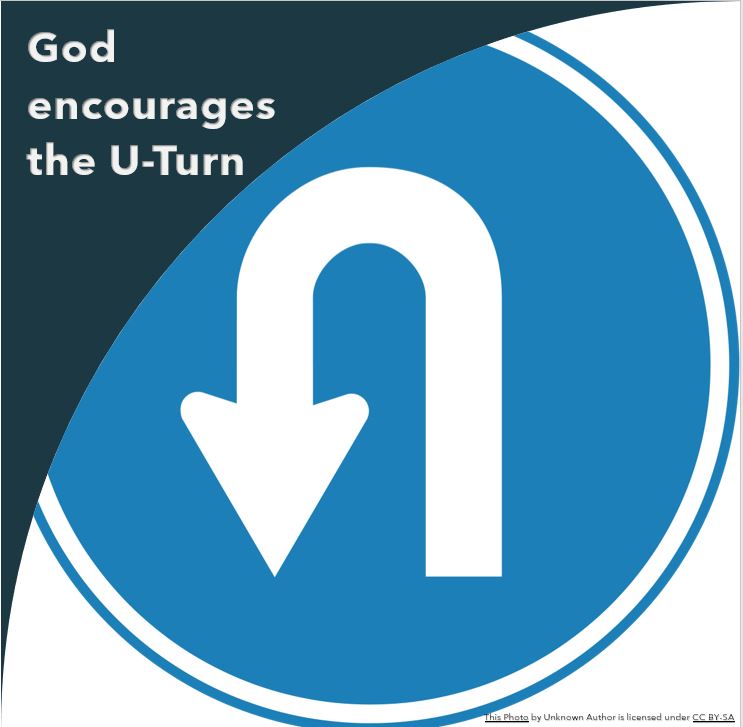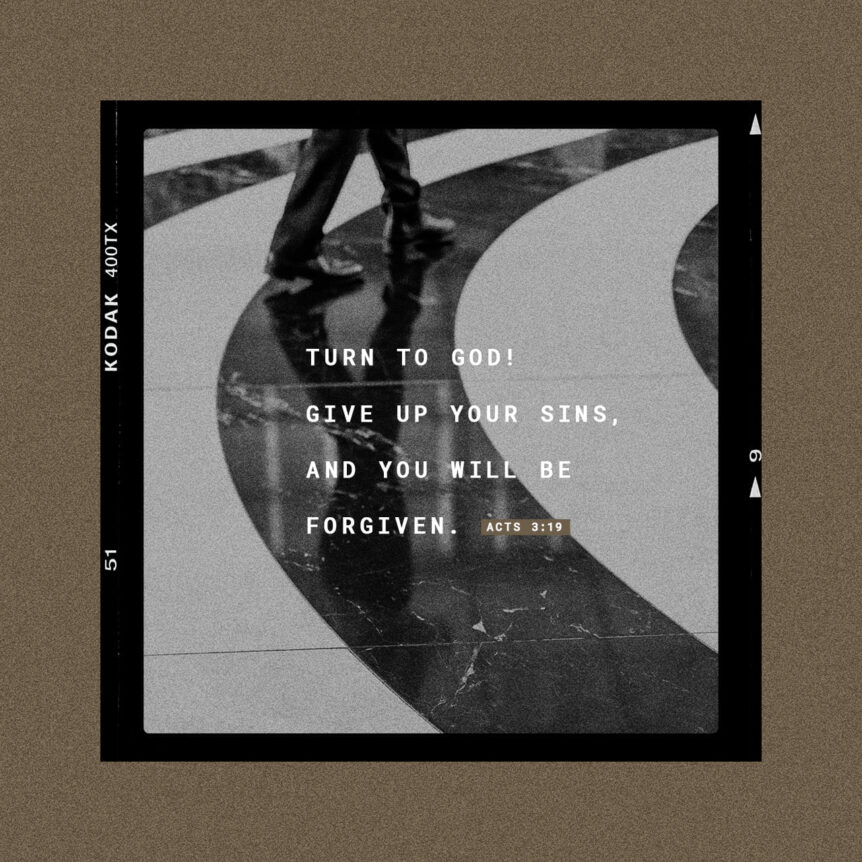Repent, therefore, and return—so your sins might be blotted out . . . Acts 3:19, TLV

God Likes U-Turns. We discussed this recently, but here YouVersion’s verse of the day is asking us to take another look at repentance.
The Hebrew word for repent is “teshuvah,” which literally means to turn or return. The Greek “metanoiete,” is similar in that it is related to “nous,” as in changing the mind. I like the image of turning and returning. We were heading in one direction, and because we realize our sin, we turn away and return to God.
Oh, by the way, the translations that use “Repent and convert” as in “convert to Christianity”? With all due respect, not accurate. The context of this verse is Peter — a Jewish disciple — preaching to a Jewish crowd during a Jewish gathering (Shavuot) in Jerusalem. Added to this, there was no “Christianity” or that term, at that time. It was simply Jewish people who realized their Messiah was indeed Yeshua — Jesus — and it was time to return to their Father.
Turning and Returning
In original Jewish thought, repentance is a natural and purposeful act. Every day, the priests were responsible for sacrificing innocent animals for the sins of the people. The people took part in that sacrifice by surrendering their own livestock or grain. There was a cost, every day.
Each day rather than going to the fields, they turned and returned to the Tabernacle and gave their offering to the priests, who then offered it to the LORD on their behalf.
Physical and Spiritual
One of the first things I learned when joining the Jewish community (nearly 25 years ago), and worshipping with the Messianic community (Jewish people who believe in Jesus), was that their faith is physical, not just spiritual. What do I mean by that? Growing up in the church, we spiritualized the legacy and history of the Bible because it’s not our physical history — not our physical ancestors. We’re grafted in (Romans 11:11-36) as wild branches.
Not so the Jewish people. Even today. Today, a sukkah is still constructed for the Feast of Tabernacles — splinters and all. Matzah — unleavened bread — is still eaten for eight days during Passover and the Feast of Unleavened Bread. The lulav and etrog are still waved at Sukkot. These applicable Biblical commandments (outside the Temple) are still physically done today, as well as meditation on the spiritual applications.
Why mention this? Because if we only spiritualize, it’s too easy to live in our heads. If we live in our own heads, we can justify a lot of strange thoughts. When we physically “teshuvah” turn away — turn off the porn, walk away from temptation, bite our tongue — we can truly return to right relationships with God and others. Every. Single. Day.



